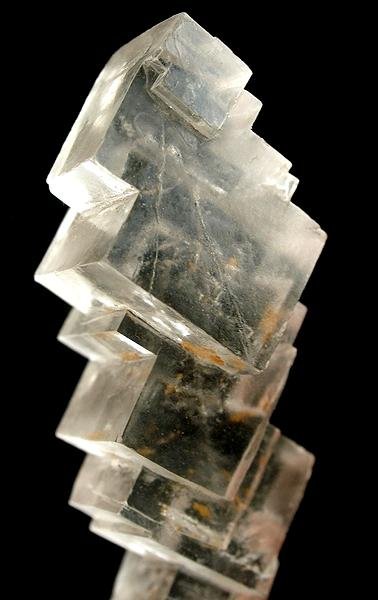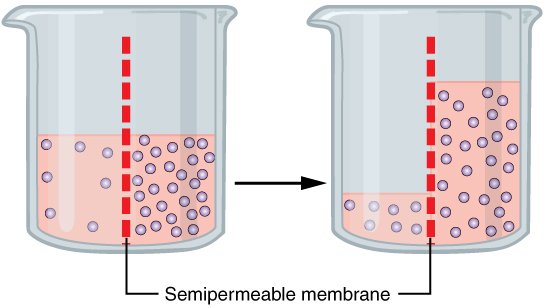Greetings steemians and science lovers! Today we're going to talk about the number one cardiovascular disease in the world responsible for over 7 million deaths/year and the cause of many diseases: Hypertension.In the last years, it has been a significant increase in persons who suffer from hypertension mainly because of the ever-increasing obesity associated with low lifestyles and unhealthy diets.We've associated hypertension with high sodium intake for decades, but what if we were wrong? Let's find out together.
What's hypertension?
We've divided hypertension into two groups, renal hypertension, and extrarenal hypertension because the kidney controls the volume of water in the body and a dysfunction can be responsible for renal hypertension.
Essential hypertension on the other side is a fixed-increased blood pressure over a long period of time, that has no identifiable cause.
The heart is a nothing more than a muscle. In a relaxed adult, when it contracts (systolic phase), the blood pressure becomes the highest, at this point we call it the systolic pressure(SP).
On the contrary, when the heart relaxes (diastolic phase), the blood pressure is the lowest and it's called Diastolic pressure(DP). We use a sphygmomanometer (blood pressure gauge) to calculate both pressures simultaneously.
For a long time, we have defined hypertension as 140 mmHg SP or/and 90 mmHg DP but it was until recently that the World Health Organisation set new numbers, 130 mmhg or/and 80 mmhg.Unfortunately, many physicians are not up to date and they still work based on the old limits.
What causes hypertension in the first place?
We still don't understand completely the pathophysiology of hypertension, many theories are really good but unfortunately, some parts are still missing.We think that it's multifactorial, it includes the age, environmental factors, genetic factors and factors related to a bad lifestyle (Sugary-rich Diets, lack of workout, smoking etc.. ).
I know for a fact that when I heard the description 'multifactorial', we don't fully understand the process.
Two elements determine your blood pressure: Cardiac output (volume of ejected blood ) and peripheral resistances. Any changes in these parameters affect blood pressure levels.For example, if you start running, your heart rate accelerate increasing your cardiac output and therefore your blood pressure levels increase.
Anyway, we know that all different proposed theories lead to one final thing, increased peripheral resistance and chronic vasoconstriction.Blood vessels are composed of circular muscles layers to control blood flow, they are permanently under the effect of the sympathetic nervous system and different hormones. In essential hypertension these muscles layers are somehow abnormally constricted:
What are the major types of salt we consume?
Salt is one of the most important ingredients in cooking. It's mainly composed of two elements: sodium (Na) and chloride (Cl-).
We use salt on all different kind of food to add that 'good' taste, it can also be used in food preservation (salting).
Salt is mainly found in seawater (about 35 grams per liter according to sciencedaily.com ) and also underground in the form of Halite (Rock salt).
There is a wide variety of different salts:
Table Salt: Typically mined from salt deposits and mostly iodized (mixed with iodine to prevent iodine deficiency)
Sea Salt: Mainly produced by evaporating seawater.
Pickling salt: Mainly for canning and pickling. It doesn't contain any anti-caking products (including iodine)
Curing salt: Mainly for food preservation. It's a mixture of basic table salt and sodium nitrite.
Himalayan Pink Salt: Mainly mined from the Khewra Salt Mine. It does contain small amounts of iron oxide (rust), which gives it a pink color.
So as you see we have plenty of salt types and most of them contain excessive amounts of sodium ions.
So, what's the relationship between salt and hypertension?
Sodium is the major ion found the body and it's generally extracellularly divided between the interstitial space(between the cells) and the blood. The cell's membrane is normally impermeable to sodium making theses ions osmotically active.
An osmotically active molecule is a molecule that creates an osmotic gradient (different water pressure) between two media resulting in water movement, this propriety is the result of the non-permeability of the membrane to the molecule itself.
To put it in simple words, an excess of sodium attracts water to the medium, we call it solute-solvent drag.
Notice in the picture above how the excess of molecules attracts water
The end result of sodium excess is a water retention.
Water or fluid retention refers to an excessive buildup of fluid in the circulatory system, body tissues, or cavities in the body.
This excess of fluids results in an increased blood pressure, many studies have demonstrated over and over the relationship between sodium buildup and hypertension, that's why doctors always insist the patients on dropping their salt intake.
To get the whole picture of the process, I advise you to read more about osmosis
My grandmother's experience:
My grandmother has been suffering from hypertension for almost 10 years now. She is very strict on her diet, doesn't add salt to her meals, doesn't eat salty products and always takes her meds at the right times, she was exemplary.Even though her blood pressure remained unstable and it was truly frustrating for her.Doctors were obliged to increase the dose of her meds but it was useless.It raised my suspicions, maybe we are doing it wrong ? maybe there's something more to it! I'm sure this is the same case of many patients around the globe.Anyway, I began to seek professional help and I did some research on my own. Finally, I found that there are some people who don't believe that low-sodium intake reduces blood pressure, if this is true then it destroys anything we understand the Sodium intake/High blood pressure association
The controversy about sodium intake :
There's no question about the direct link between high sodium intake and cardiovascular diseases.Many epidemiological studies and clinical trials support this claim, the debate began when we start defining the daily intake of sodium.The recommendations of the World Health Organisation are not the same as the American Heart Association and The US Food And Drug Association, recommendations are generally below 2500 mg/day.
The quantification of sodium intake is indeed hard and it requires watching regularly many parameters especially if we count individual factors specific to each person such as sodium excretion through the urine and the sweat, sodium absorption by the gut and other factors.
The previous epidemiological studies are now accused of mal-observance and a lack of consideration, they become unreliable.
The picture above shows the prevalence of hypertension in the world in 2014. Canada is one of the countries with the lowest prevalence although the average consumption by Canadians is 3400 mg/day, that's way higher than the recommended intake !
I mentioned earlier that we don't fully understand the pathophysiology of hypertension so there's no real evidence that a certain diet will work on two different peoples, what we have for evidence are just statistics.
Nevertheless, it's just stupid to overlook all the studies that have demonstrated the harmful effects of high-sodium diets on the cardiovascular system.
A New Perspective?
In 2017 a group of researchers at Boston University School of Medicine studied the levels of blood pressure in 2,600 men and women for 16 years, the participants had normal levels at the beginning.
The results of the study were divided into 2 groups:
- Participants, who consumed less than 2500 milligrams of sodium a day, had higher blood pressure than those who consumed higher amounts.
- Participants who consumed high amounts of potassium, calcium, and magnesium were more likely to have lower blood pressure.
Lynn Moore, an associate professor added:
Our new results support these other studies that have questioned the wisdom of low dietary sodium intakes in the general population.
It's not the first big research to support this claim, they have established what we call a J-shaped relationship between sodium and cardiovascular risk, both low intake and high intake sodium diets increase the overall cardiovascular risk.The beauty of this explanation can be put in two parts:
First, It supports the countless studies that related the high sodium intake with an increased cardiovascular risk. Second, it criticizes the tendency toward low-sodium diets as a treatment for hypertension.
The complexity of blood pressure regulation makes some people more sensitive than others, that's why some low-sodium diets work so well for them, maybe these diets work in the short-term but increase cardiovascular risk in the long run? we really don't know for sure and further studies need to be done.
Nevertheless, this study showed us a different point of view regarding the treatment of hypertension but there's just more to it.
Summary:
Modern diets are very rich in salt, they exceed the recommended amounts so it's beneficial to reduce salt intake as long as you don't overdo it and you can always ask for the advice of a nutritionist.Here's other advice to avoid hypertension or at least control it:
- Consume more foods rich in Potassium, Calcium, and magnesium (I could make a list but I'm too lazy, just google it :p )
- Workout regularly
- Quit smoking
- Avoid sugar-rich foods
- Avoid fat-rich diets and Consume healthy fats
- Control your stress levels by meditating or doing pleasurable activities
Thank you very much for taking the time to read my article, please if you have any question feel free to leave a comment below.Also, you can check my latest articles for more.
Hospital Diary 1: The Homeless Man...
These magnetically-driven nanoparticles could revolutionize the treatment of internal bleedings
I wish you all a good day ^^
References & Sources:
https://en.wikipedia.org/wiki/Essential_hypertension
https://www.ncbi.nlm.nih.gov/pubmed/23720252
https://www.medicalnewstoday.com/articles/187978.php
https://www.ncbi.nlm.nih.gov/pmc/articles/PMC4312143/
https://www.fasebj.org/doi/abs/10.1096/fasebj.31.1_supplement.446.6
https://www.sciencedaily.com/releases/2017/04/170425124909.htm
https://en.wikipedia.org/wiki/Himalayan_salt
https://www.sciencedaily.com/terms/seawater.htm
One more thing, Join the @steemSTEM community, A community project to promote science technology engineering and mathematics postings on Steemit.







Organic and Inorganic Minerals
POISONOUS SALTS
Not eaten any inorganic salt for years and I truly feel better than ever! :D
That's pretty interesting ! but is there any recent studies to support this claim ? I read the resources you gave me but i'm not totally convinced, i know for sure that the bioavailability of minerals are higher when they're organic but that doesn't mean inorganic minerals are poisonous !
SALT CRIMES
THE SALT CONSPIRACY
SALT IS A DRUG by Ron Brown, Ph.D.
Fancy a nail? ;)
I see your point , consuming human nails is indeed harmful but that doesn't mean minerals in the nails are the cause ! Human nails are hard to digest and contains Perfluoroalkyl compounds (PFAA), which are very very toxic ! Anyway i don't have the full image about the subject, all i know is that organic form is better in terms of absorption but i don't know about the toxicity thing, so i'll do my own researchs and i'm open to new thoughts if you have anything in mind...
I recommend not only reading about it but actually trying it out yourself. Just go for the organic minerals and avoid the inorganic ones for a set amount of time and feel the tremendous benefits that excluding it brings...
Okay, i'll read a lot about the subject and give it a shot !
very good
Thanks @mahera
This is quite a piece @fancybrothers. Of a truth, high salt consumption and sodium intake is a silent killer of its own. My mum suffered from hypertension and HBP for years. Despite various forms of treatments, i'm pretty sure it contributed to her death last year. Just like you noted, a lot of facts are still unclear about the pathophysiology of hypertension. Hopefully, more research and studies would uncover more of the mysteries in the not too distant future.
Thanks @rickie, first i'm really sorry for your loss , second yeah that's the problem, we really still missing some pieces , hopefully in the future we'll get our answers !
Anecdotally, lower sodium intake reduces my blood pressure. As a sufferer of hypertension since the age of 16 I try to keep my sodium intake lower then most people. (Notice I specified sodium, and not other salts)
In fact in the same research, they pointed at this phenomenon, Pr Moore said :
I guess you are oversensitive after all ! if your low-sodium diet worked for you, than it's better to stick to itNice post, it was helpful, i didnt know abt some of these stuff, thst is why we learn everyday, nobody is all knowing
Anything in excess is harmful. I have always been careful with my salt intake since my mom became vegan and she avoided salt and sugar. Interesting articles what reko commented.
Yes of course, anything in excess or lack is no good, that's the point of this whole article ;)
It is my understanding that it's hard to quantify how high is high sodium?
Kinda of but the problem is low sodium diets dont work as expected on specific people,, anyway our diets are very high in salt so its somehow always good to reduce the intake..
Didactic post. I learnt a lot from it. We should really take care of ourselves.
Good to hear it :)
Great post! I was almost fully convinced by your theory but then the resources shared by @reko in the comment section threw open another debate in my mind
I'm really lost in the middle of all this controversy.... I would have to conduct a further research of my own to further ascertain the relationship between sodium and hypertension
Thanks a lot for stopping by ! In fact we discussed the inorganic/organic form of sodium intake and its effects on the overall health, it's really another subject , it has nothing to do with the controversy of low/ high sodium intake.Neverthless, organic sodium is better absorbed than inorganic form (regular table salt for exp), that means you get more sodium consuming plants rich is sodium or other minerals.Anyway it shouldn't be that confusing just think about it as two different subject, my article discuss the quantity and @reko and i discuss the quality.
Ohh.. Then I think the argument is resolved... Lol.. Great work her... Well done!!!
Congratulations! This post has been upvoted from the communal account, @minnowsupport, by Fancybrothers from the Minnow Support Project. It's a witness project run by aggroed, ausbitbank, teamsteem, theprophet0, someguy123, neoxian, followbtcnews, and netuoso. The goal is to help Steemit grow by supporting Minnows. Please find us at the Peace, Abundance, and Liberty Network (PALnet) Discord Channel. It's a completely public and open space to all members of the Steemit community who voluntarily choose to be there.
If you would like to delegate to the Minnow Support Project you can do so by clicking on the following links: 50SP, 100SP, 250SP, 500SP, 1000SP, 5000SP.
Be sure to leave at least 50SP undelegated on your account.
Great post! Lets do this together at @souldelas.
Thanks for stopping by :)